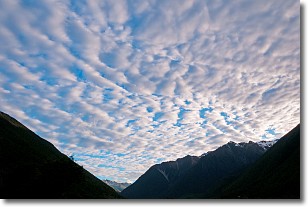Weather Alert in Texas
Flash Flood Warning issued April 30 at 1:47PM CDT until April 30 at 4:00PM CDT by NWS Fort Worth TX
AREAS AFFECTED: Denton, TX
DESCRIPTION: FFWFWD The National Weather Service in Fort Worth has extended the * Flash Flood Warning for... Denton County in north central Texas... * Until 400 PM CDT. * At 147 PM CDT, Doppler radar and automated rain gauges indicated thunderstorms producing heavy rain across the warned area. Between 1.5 and 3.5 inches of rain have fallen. Additional rainfall amounts of 1 to 2 inches are forecast. Flash flooding is ongoing or expected to begin shortly. HAZARD...Flash flooding caused by thunderstorms. SOURCE...Radar and automated gauges. IMPACT...Flooding of small creeks and streams, urban areas, highways, streets, and underpasses as well as other poor drainage and low lying areas. * Some locations that will experience flash flooding include... Dallas, Fort Worth, Plano, Carrollton, Frisco, Denton, Lewisville, Flower Mound, Grapevine, Coppell, The Colony, Southlake, Corinth, Highland Village, Trophy Club, Lake Dallas, Sanger, Lake Lewisville, Little Elm and Prosper.
INSTRUCTION: Turn around, don't drown when encountering flooded roads. Most flood deaths occur in vehicles. Be aware of your surroundings and do not drive on flooded roads.
Want more detail? Get the Complete 7 Day and Night Detailed Forecast!
Current U.S. National Radar--Current
The Current National Weather Radar is shown below with a UTC Time (subtract 5 hours from UTC to get Eastern Time).

National Weather Forecast--Current
The Current National Weather Forecast and National Weather Map are shown below.

National Weather Forecast for Tomorrow
Tomorrow National Weather Forecast and Tomorrow National Weather Map are show below.

North America Water Vapor (Moisture)
This map shows recent moisture content over North America. Bright and colored areas show high moisture (ie, clouds); brown indicates very little moisture present; black indicates no moisture.

Weather Topic: What is Snow?
Home - Education - Precipitation - Snow
 Next Topic: Stratocumulus Clouds
Next Topic: Stratocumulus Clouds
Snow is precipitation taking the form of ice crystals. Each ice crystal, or snowflake,
has unique characteristics, but all of them grow in a hexagonal structure.
Snowfall can last for sustained periods of time and result in significant buildup
of snow on the ground.
On the earth's surface, snow starts out light and powdery, but as it begins to melt
it tends to become more granular, producing small bits of ice which have the consistency of
sand. After several cycles of melting and freezing, snow can become very dense
and ice-like, commonly known as snow pack.
Next Topic: Stratocumulus Clouds
Weather Topic: What are Stratus Clouds?
Home - Education - Cloud Types - Stratus Clouds
 Next Topic: Wall Clouds
Next Topic: Wall Clouds
Stratus clouds are similar to altostratus clouds, but form at a
lower altitude and are identified by their fog-like appearance, lacking the
distinguishing features of most clouds.
Stratus clouds are wider than most clouds, and their base has a smooth, uniform
look which is lighter in color than a nimbostratus cloud.
The presence of a stratus cloud indicates the possibility of minor precipitation,
such as drizzle, but heavier precipitation does not typically arrive in the form
of a stratus cloud.
Next Topic: Wall Clouds
Current conditions powered by WeatherAPI.com




